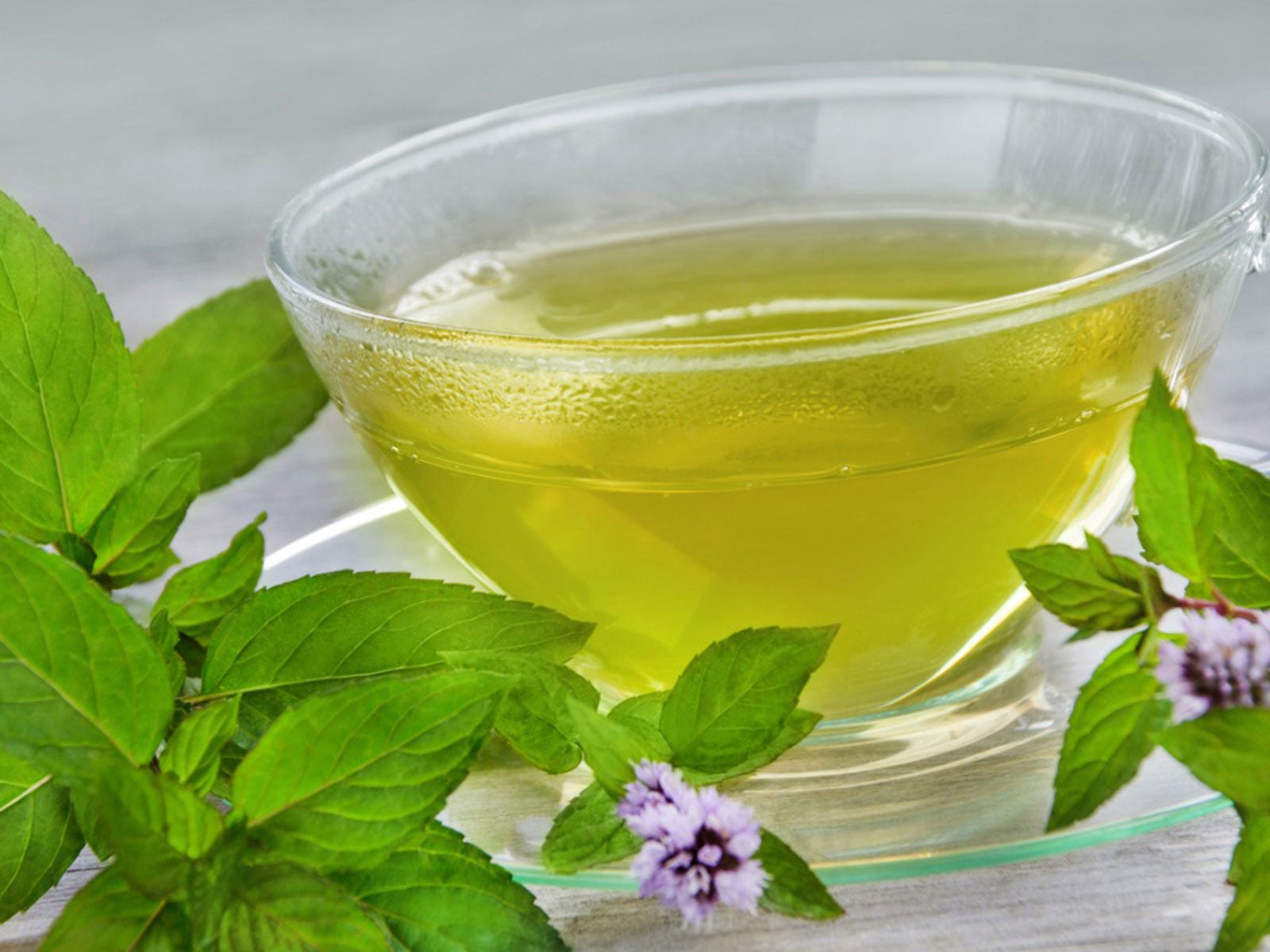
Sign up for the Gardening Know How newsletter today and receive a free copy of our e-book "How to Grow Delicious Tomatoes".
You are now subscribed
Your newsletter sign-up was successful
If you’ve ever sunk back into a chair with the invigorating, yet soothing aroma of a hot cup of mint tea, it will come as no surprise that peppermint has medicinal healing powers.
What are some other ways of using peppermint herb plants? You already know about some peppermint plants uses-- toothpaste, for example, but there are other ways to use peppermint. Read on to find out what to do with this herb.
What to Do with Peppermint
Leave the tea bags on the grocery shelves and do yourself a favor by steeping your tea with fresh mint leaves; just steep the leaves for five minutes in boiling water. Peppermint also makes delicious, iced tea. Tea isn’t the only beverage that benefits from using peppermint herb plants.
Fresh lemonade infused with a few sprigs of peppermint becomes something sublime, and don’t forget the adult beverages, such as mojitos, to cool and refresh on a summer evening.
Another peppermint plant use is, of course, in food. Chop peppermint into fresh fruit salad or cool down fiery curries with a few sprigs. Two classic pairings are mint and fresh spring peas or mint jelly with lamb.
Think outside the box and add mint to other veggies such as carrots, cauliflower, or zucchini. Mint pesto, a better substitute for the aforementioned mint jelly, can be made with lots of fresh peppermint, lemon juice, olive oil, garlic, salt, and ground pepper. Go nuts and add almonds or step things up by adding cilantro to your pesto.
Additional Peppermint Plant Uses
To freshen your breath after dinner, chew on some fresh peppermint leaves or swish some homemade peppermint mouthwash around your mouth. For the mouthwash, chop peppermint and add to boiling water to infuse. Cool and then strain the herbs out and store in the refrigerator. If you are breastfeeding, skip this peppermint plant use, as peppermint can reduce milk supply.
Sign up for the Gardening Know How newsletter today and receive a free copy of our e-book "How to Grow Delicious Tomatoes".
Since you’re in the bathroom, another way to use peppermint is in the bath. Steep a good handful of mint leaves in a pitcher of hot water for ten minutes and then strain the peppermint out. Add the infused water to your bath.
What else should you be using peppermint herb plants for? Peppermint leaves can ease the pain of sunburn. Simply make a strong batch of peppermint tea and then cool it in the fridge. Gently apply to burned skin with cotton pads.
Another way to use peppermint is as a bug repellant. Strong aromatic herbs are good for repelling bugs. Issues with moths in the closet? Tie a bundle of peppermint together and hang it where you hang your clothes or fill a nylon stocking or other breathable bag with crushed leaves.
You can also crush mint and rub the essential oil across your skin to ward off midges and other pests. Ants are repelled by a few crushed stems of mint placed where they enter the house. Even fleas are deterred by the invigorating aroma. Just stuff a small pillow with fresh mint and thyme and place it on your fur babies’ bedding.
Since peppermint is known to repel pests, don’t forget to incorporate them around the vegetable garden to ward off pesky insects. Just remember that all the mints are voracious in their growth habit, so unless you want them to take over the garden, they should be planted in containers.

Amy Grant has been gardening for 30 years and writing for 15. A professional chef and caterer, Amy's area of expertise is culinary gardening.
